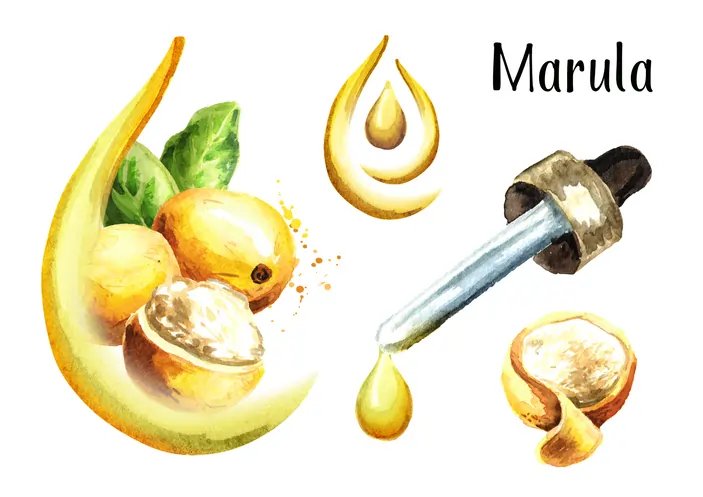Marula Oil Market Set to Reach $105.6 Million by 2034 as Demand for Natural Skincare and Haircare Soars


Marula oil has rapidly emerged as one of the most coveted natural ingredients in the beauty and skincare world. With a rich history of traditional use and a modern reputation for excellence, marula oil is celebrated for its ability to nourish and rejuvenate both hair and skin.
Marula oil has rapidly emerged as one of the most coveted natural ingredients in the beauty and skincare world. With a rich history of traditional use and a modern reputation for excellence, marula oil is celebrated for its ability to nourish and rejuvenate both hair and skin.
According to a Fact.MR study, the global Marula Oil Market is estimated to reach a value of $58.3 million in 2024 and is projected to expand at a 6.1% CAGR to achieve $105.6 million by the end of 2034. This promising trajectory reflects an increasing consumer awareness of the oil’s potent benefits, as well as a broader shift toward natural and organic personal care products.
Rising Demand and Market Growth:
The remarkable growth forecast for marula oil is not merely a statistic—it is a testament to a dynamic market driven by evolving consumer habits. In today’s world, where more people are scrutinizing the ingredients in their skincare and hair care products, marula oil stands out due to its anti-aging, hydrating, and skin-renewing properties. As consumers become more educated about what they apply to their skin, there is a growing preference for ingredients that are both effective and naturally derived. This surge in demand is not confined to one region; it is a global phenomenon fueled by increased disposable income and an overall desire for sustainable, high-quality products.
Innovative beauty and skincare companies are at the forefront of this movement. They are leveraging the distinctive properties of marula oil to differentiate their product offerings in a competitive market. The oil’s natural origin, combined with its extended shelf life and versatility in formulations, makes it an attractive option for manufacturers aiming to create products that promise both efficacy and ethical sourcing. As more consumers shift toward ingredients that provide visible results without harsh chemicals, the marula oil market is poised for continued expansion and innovation.
Click to Request a Sample of this Report for Additional Market Insightshttps://www.factmr.com/connectus/sample?flag=S&rep_id=9801
The Natural Benefits of Marula Oil:
Marula oil’s popularity can be attributed to its impressive profile of natural benefits. Extracted from the nuts of the marula tree, this oil is rich in fatty acids and antioxidants, which play a crucial role in combating the signs of aging and environmental damage. Its lightweight, non-greasy texture allows for quick absorption, making it ideal for various skin types, including those prone to oiliness or sensitivity. Users of marula oil often highlight its ability to moisturize deeply while also reducing inflammation, irritation, and dryness.
In addition to its moisturizing capabilities, marula oil is recognized for its antimicrobial properties. This makes it a favored ingredient in products designed to repair acne-prone or irritated skin. Whether applied directly to the face, hair, or nails, marula oil offers a natural solution that not only hydrates but also helps soothe the skin. Its capacity to prevent sun damage and diminish the appearance of wrinkles has further bolstered its reputation as a go-to ingredient in anti-aging formulations. As more beauty enthusiasts seek out natural remedies that work in harmony with the skin, marula oil continues to gain traction as a versatile and highly effective element in personal care routines.
Ethical Sourcing and Sustainability:
The limited harvesting season of the marula fruit—typically available only for two to three months a year—adds a layer of exclusivity and underscores the need for responsible cultivation practices. Natural calamities and diseases that affect the fruit further emphasize the importance of sustainable production methods to balance demand and supply. Manufacturers who invest in ethical sourcing not only ensure a consistent supply of high-quality marula oil but also build trust with a consumer base that values integrity and environmental stewardship. This focus on sustainability resonates particularly well in the current market, where brands that are perceived as socially responsible often enjoy a competitive edge.
Marula Oil Market Key Companies Profiled:
Geographic and Economic Insights:
The global appeal of marula oil is reflected in its diverse geographic reach and economic impact. East Asia, for example, is projected to account for a 27% share of the marula oil market by 2034, driven largely by the region’s robust production and increasing use of organic cosmetics and personal care products. In China, the market is witnessing an impressive growth rate of 6.6%, with projections indicating that the country’s marula oil market will reach a valuation of US$ 21.1 million by the end of 2034. This growth is underpinned by a rapidly evolving beauty and skincare industry that embraces natural ingredients and innovative formulations.
Across North America, the United States is emerging as a significant player in the marula oil market. With a current market value of US$ 9.2 million in 2024 and expectations to grow to US$ 15.1 million by 2034, the U.S. market reflects a deepening appreciation for minimally processed, naturally sourced ingredients. The focus on ethical production and the increasing demand for personal care products that incorporate natural elements have spurred growth in this region. Economic factors such as rising disposable incomes in key regions further contribute to the expanding demand for marula oil, as consumers are willing to invest in high-quality ingredients that offer both tangible benefits and peace of mind.
Get a Custom Analysis for Targeted Research Solutions:https://www.factmr.com/connectus/sample?flag=S&rep_id=9801
Innovation and Product Differentiation:
In the competitive landscape of the beauty and skincare industry, innovation is paramount. Companies are increasingly focusing on ingredient innovation and the incorporation of exotic elements into their formulations. Marula oil, with its unique properties, serves as a prime example of how natural ingredients can be used to differentiate products in an overcrowded market. Its remarkable combination of antioxidants, vitamins, and fatty acids enhances its appeal not only as a skincare ingredient but also as a key differentiator for product lines that aim to stand out for their purity and efficacy.
Manufacturers are also investing in research and development to extend the shelf life of marula oil-based products. This is a critical consideration for both cosmetic and food industries, where product longevity can significantly influence consumer purchasing decisions. The long shelf life of marula oil minimizes oxidation risks and maintains the integrity of the final product, making it a reliable ingredient for companies aiming to meet the high standards of quality and performance expected by today’s consumers. By harnessing the natural benefits of marula oil, companies are creating products that deliver visible results while also aligning with the growing trend toward organic and ethically sourced ingredients.
Expanding Opportunities and Competitive Landscape:
Opportunities for new market entrants are abundant, particularly in the luxury skincare segment. By tailoring products to specific demographics, such as men’s grooming or niche skincare needs, startups can carve out unique positions in the market. The development of specialty products that address targeted concerns is anticipated to further highlight the versatility of marula oil. As the global market expands and consumers continue to seek out high-quality, naturally derived ingredients, there is significant potential for growth across various segments of the beauty and personal care industries.
The competitive landscape is populated by companies that are committed to maintaining a balance between supply and demand through rigorous quality control and innovative supply chain management. Key players in the industry, including Marula Natural Products (Pty) Ltd., Marula Company, and Phyto Africa GmbH, among others, are continuously striving to enhance their production methods and expand their market reach. Their focus on fortifying systems related to quality control and sustainability not only ensures the consistent delivery of high-grade marula oil but also reinforces the market’s credibility as consumers become more discerning in their product choices.
Embracing the Future of Natural Skincare:
The future of marula oil in the beauty industry is bright and brimming with potential. As consumers become more knowledgeable about the benefits of natural ingredients and the importance of ethical sourcing, marula oil stands poised to play a central role in the formulation of innovative skincare and hair care products. The oil’s natural properties—ranging from its anti-aging and moisturizing benefits to its antimicrobial and skin-renewing capabilities—make it an indispensable ingredient for brands aiming to deliver high-performance, sustainable solutions.
Manufacturers who invest in research and sustainable practices will likely lead the way in transforming market trends and setting new standards for product excellence. With increasing consumer awareness and a commitment to quality, marula oil is not just a fleeting trend but a lasting asset that continues to evolve in tandem with the global beauty industry. Its integration into personal care products is redefining what it means to choose natural, ethical, and effective beauty solutions.
Explore More Related Studies Published by Fact.MR Research:
The Feed Yeast Market is expanding from an estimated $678.2 million in 2024 to a colossal $1,245.2 million by 2034, fuelled by a 6.3% CAGR.
Botanical Extract Market size is projected to grow with a healthy CAGR of 8%, to reach a valuation of US$ 13.5 billion by the end of 2033
The Mechanically Separated Meat Market is forecasted to expand at a CAGR of 4.7% to reach a size of US$ 442.9 million by the end of 2033
The Food Retail Market is set to skyrocket, expanding from an estimated $12,588.8B in 2024 to a colossal $21,503.5B by 2034, fuelled by a CAGR of 5.5%.
Craft Beer Market is estimated at US$ 93.97 Bn in 2024 & US$ 187.99 Bn by 2034. Demand for non-alcoholic craft beer projects rises.
The Forskolin Market is expanding from an estimated $584 million in 2024 to a colossal $1.32 billion by 2034, fueled by an impressive CAGR of 8.5%.
Potato Starch Market stands at a valuation of $4.81 billion in 2024 and is projected to reach $7.69 billion by 2034, growing at a CAGR of 4.8%.
Protein Hydrolysate Ingredient Market is projected to rise from $3.53 billion in 2024 to $6.15 billion by 2034. North America expects 25.1% growth.
Explore more articles in the Research Reports category











